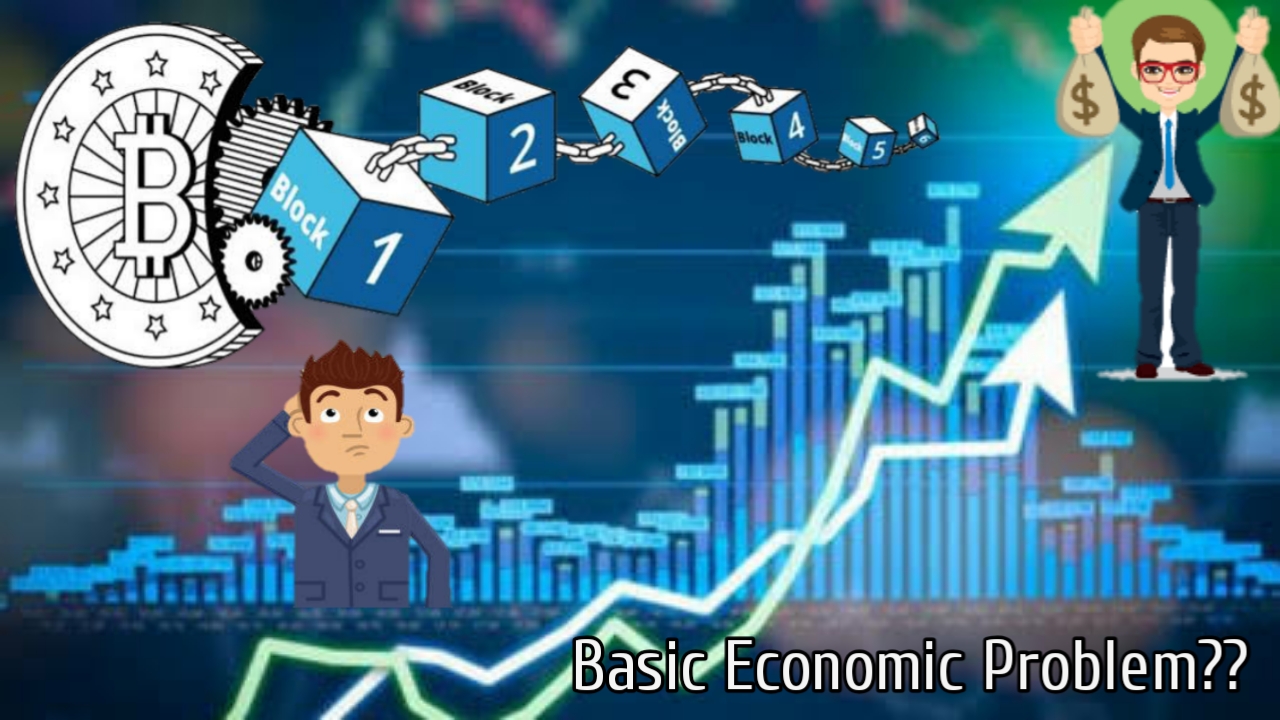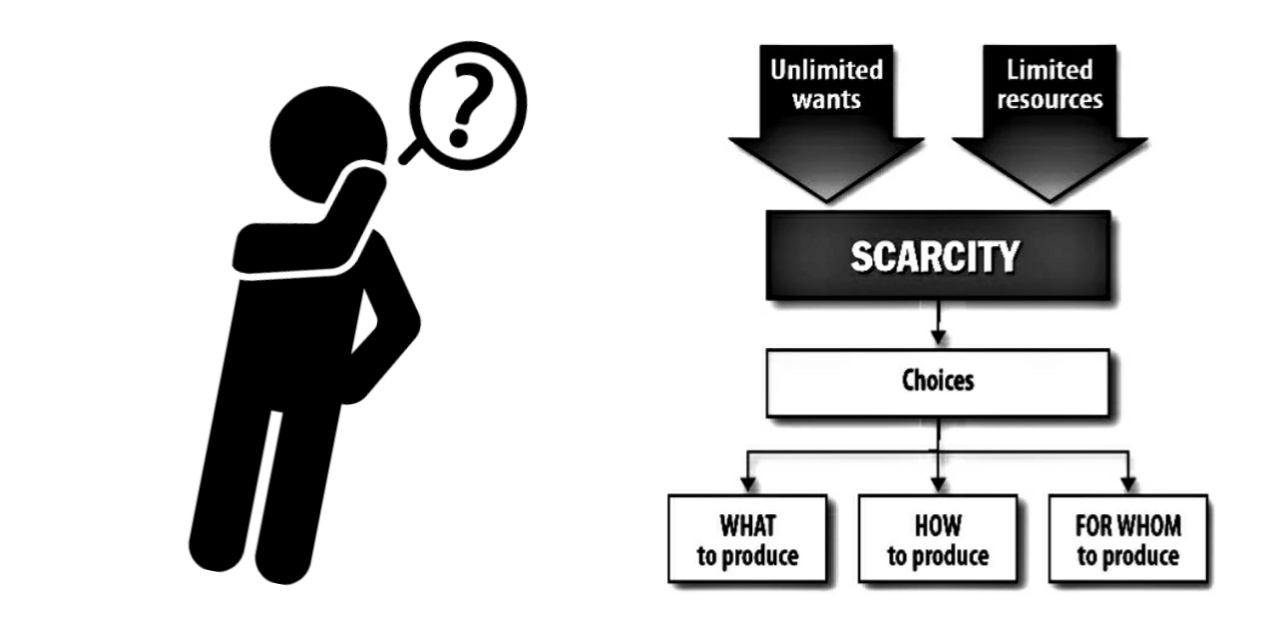
The Fundamental Economic Problem
- Needs & Wants: A need is a basic requirement for survival, such as food, clothing & shelter. A want is something we like to have but isn’t necessary for survival, such as
delicious foods. - Scarcity: Scarcity is the condition that results from society not having enough resources to produce all the things people would like to have. Scarcity affects almost every decision we make.
- Why scarcity is a universal problem: Our wants & needs are unlimited, but there is a
scarcity of resources. Societies don’t have enough productive resources to satisfy
everyone’s wants & needs.
The fundamental economic problem facing all societies is that of scarcity. It forces consumers and producers to use resources wisely. Economics is the study of how people try to satisfy unlimited wants & needs with limited resources.

The Three Basic Economic Questions
Because we live in a world of relatively scarce resources, we have to make careful economic
choices about the way we use these resources. Scarcity forces every society to answer three basic questions of..
A. WHAT to produce?
B. HOW to produce?
C. For WHOM to produce?
.jpeg)
A. WHAT to produce?
The first question is to decide what goods should be produced, in what quantity & quality, deciding at the same time about the preferred use of the limited resources. Consumer goods i.e. food, clothes etc. increase the well-being of society in the present, while productive goods i.e. tools, machinery, plantations, vehicles etc. facilitate higher outputs in the future.
The question should be answered not only at the level of the national economy, but by individual producers too. For example, should a society direct most of its resources to the production of military equipment or to other items such as food, clothing or housing?
Suppose the decision is to produce housing. Should the limited resources be used to build low-income, middle-income, or upper-income housing? A society cannot have everything its people want, so it must decide ‘WHAT to produce’.
.jpeg)
B. HOW to produce?
The question of ‘how’ implies the choice of technology, i.e. to decide what combination of
resources are used to produce the desired goods.
A country should decide how to employ its labor force (in agriculture, manufacturing, service, trade, etc.), what energy sources to use (oil, coal, solar power), what materials to use in manufacturing (metals, plastics etc.), and which technology option to apply (an environmentally damaging one or a less polluting one)?
The individual producer must also choose a technology option, keeping in mind the costs and the efficiency.
.jpeg)
C. For WHOM to produce?
The question ‘for WHOM to produce’ implies the identification of the final users of the output. Who will get the output? Will those who work harder receive a larger share of the products?
For the economy as a whole the question refers to the distribution of produced goods and generated incomes among the individuals and various groups of society.
For the individual producer the question refers to the targeted consumers. The question of ‘for WHOM to produce’ is closely linked to ‘WHAT to produce’; the two questions cannot be
answered separately.